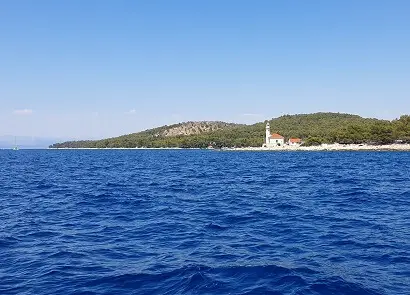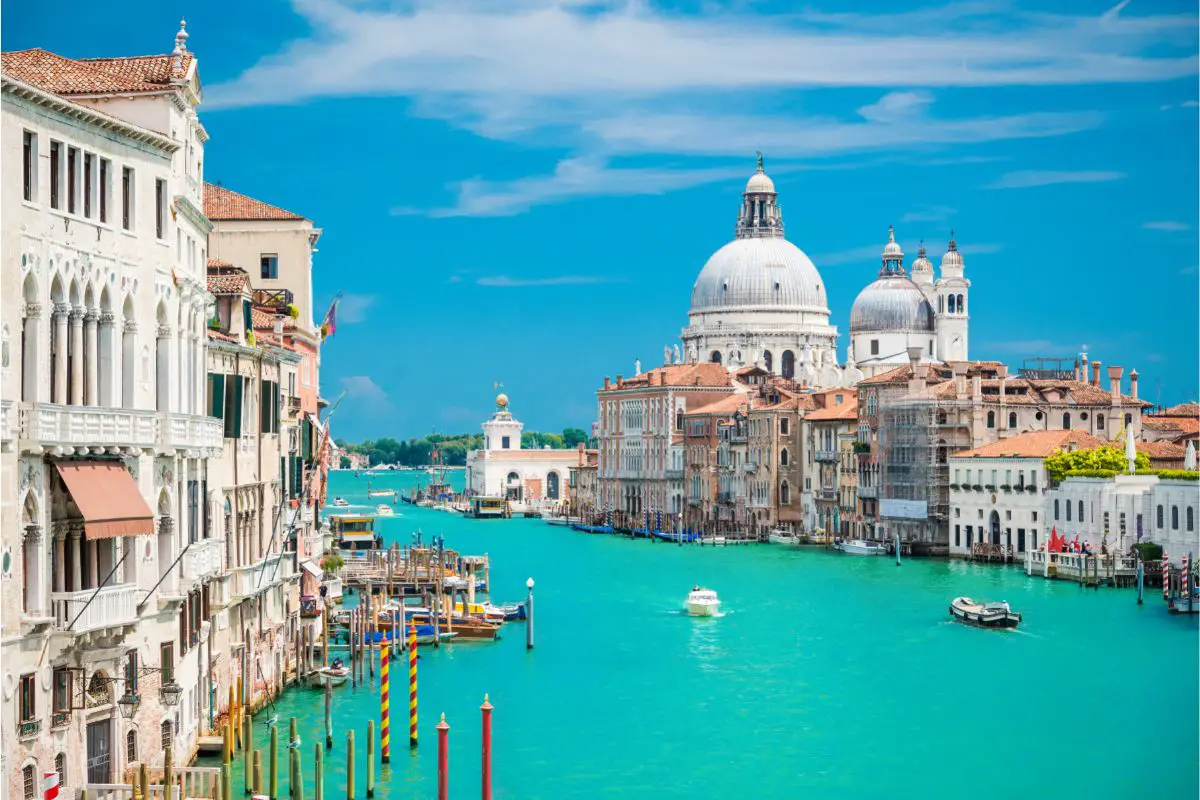Wherever you’re thinking of traveling, it’s always good to know what you are getting yourself in for in terms of the weather and the climate. If you want to see Europe in the summer then you will want to know, is Croatia as hot as Greece?

Typically, Croatia is slightly colder than Greece since it is further north of the equator. It does, however, depend on where you are in either country and the weather patterns at the time that you visit.
Read on to discover all about the climates of these two stunning countries on the Mediterranean and how they compare.
Why Is Croatia Colder Than Greece?
There are a lot of similarities between Greece and Croatia in terms of where they are in the world and the natural environments that you will find there, but there are some important differences as well.
Greece is further south than Croatia, and the Greek islands that spread out into the Aegean and the Ionian Seas reach as close to the equator as northern Africa. Croatia, on the other hand, is slightly further north, and near central Europe.
The equator is an imaginary line that runs directly through the middle of the planet and (due to the curvature of the Earth) it marks the point that is the shortest distance from the Sun. The closer you are to this line, the more direct the sunlight will be. This means that the rays are more concentrated and, therefore, the temperatures are warmer.
Of course, there are other factors that affect the average temperature as well, such as proximity to the coast and altitude, so some southern regions can be cooler than those further north.
How Hot Does It Get In Croatia and Greece Over The Summer?
In July and August, the average maximum temperature in Greece is 90°F (32°C) and can reach 95/97°F (35/36°C). In Croatia, however, the average maximum temperature over these months is around 77°F (25°C), and but can be as high as about 84°F (29°C).
It does depend on where in each country you are, though.
In Croatia, the summer temperature ranges from around 79 to 86 degrees Fahrenheit (26 to 30°C) on the coast, from 72 to 79 degrees Fahrenheit (22 to 26°C) in the continental areas, and from 59 to 68 degrees Fahrenheit (15 to 20°C) in the mountains.
In Greece, temperatures in the summer are usually between 70 and 91 degrees Fahrenheit (21 to 33°C) in the north, between 73 and 91 degrees Fahrenheit (23 to 33°C) in the central-southern region, and from 72 to 84 degrees Fahrenheit (22 to 29°C) on the southern islands.
The capital city of Greece, Athens, is actually known as the hottest capital in Europe. It is not uncommon for temperatures to reach as high as 100°F (38°C) and the city even holds the official record for the highest temperature ever recorded in the entire continent. A staggering 119°F (48°C) was measured in Athens on July 10, 1977.
What Is The Climate Like In Croatia?
Although Croatia is slightly more northerly than Greece, it does still get very hot weather in the summer, and it is a wonderful place to enjoy the sun.
Of course, the exact kind of weather and temperature that you can expect will depend on where in the country you are visiting, and when. Croatia experiences three main types of climate: on the Adriatic Coast, in the Dinaric Alps, and on the Northern Plains.
- Adriatic Coast. The Adriatic Coast is the coastline that runs along the western side of the country. Here, there is a Mediterranean climate, although it is colder and rainier the further north you go. The summers are sunny, but there is some rain all year round.
- Dinaric Alps. The Dinaric Alps are a mountain range that separates the Balkan Peninsula from the Adriatic Sea. In this area, there is a more continental climate with quite a lot of rain. It is generally quite cold compared to the rest of the country, although summer days can still be hot.
- Northern Plains. The plains to the north and east of Croatia have a continental climate. Summer is actually the rainiest season here, and it can be dark and gloomy over the winter.
What Is The Climate Like In Greece?
Just like Croatia, Greece has quite a diverse range of climates. Much of the landmass is coastal or made up of small islands, but there are significant areas of the country that are inland to the north, and there are even mountainous regions as well.
- Coasts and islands. The many islands of Greece, as well as much of its coastline, experience a Mediterranean climate. Winters are mild and rainy and the summers are hot and sunny, although the average temperature on the islands is slightly cooler because of the ocean air.
- Inland regions. Around Epirus, Macedonia, and Thessaly to the north there is more of a continental climate. Winters can be cold but there is rarely rainfall. Over the summers, there are a lot of sunshine hours and it does get hot.
- Extreme north and mountains. If you travel very far north or up into the mountains, then winters can get cold, with heavy snowfalls and intense frost being relatively common. Over the summer it will still be hot during the day, but quite cool at night.
- Center-south. This more central region is actually the hottest part of the country. It is close to the equator, but not as affected by the cool wind coming off the sea. The climate is Mediterranean with mild, rainy winters and hot, sunny summers.
Summary: Is Croatia As Hot As Greece?
So, is Croatia as hot as Greece? Not quite. It is certainly a hot and sunny place to visit in the summer, but it doesn’t usually reach the highs of the same temperatures that you get across most of Greece.
It does, however, depend a bit on where in either country you go. The northern, mountainous regions of Greece can be quite cool whereas the southern Dalmatia coast of Croatia can be very hot.
On average, though, Greece experiences notably hotter weather than Croatia, particularly in the central-southern region around the capital city of Athens.
- The Top Restaurants Specializing in Truffle Dishes - August 10, 2023
- Truffle Panna Cotta: A Decadent Dessert Recipe for Truffle Lovers - August 7, 2023
- Truffle Scrambled Eggs: A Luxurious Breakfast Delight - August 7, 2023








